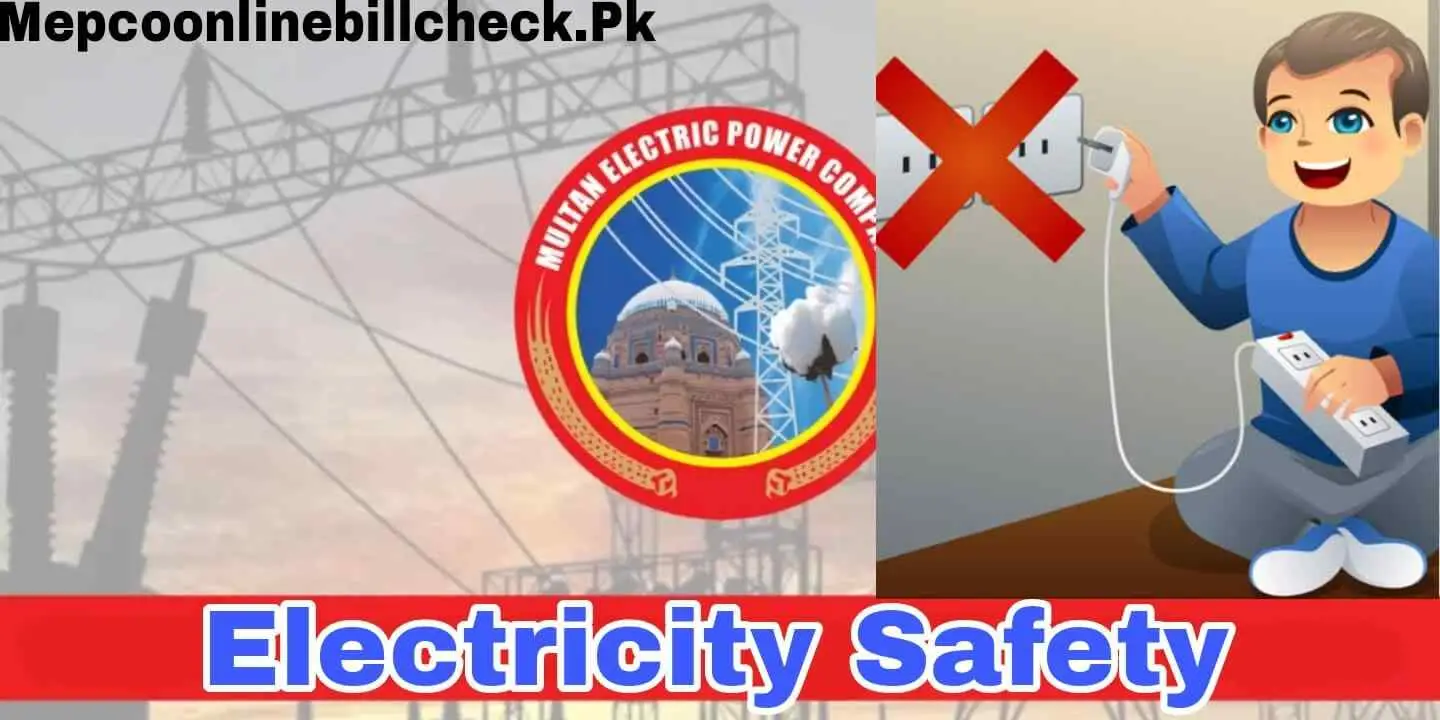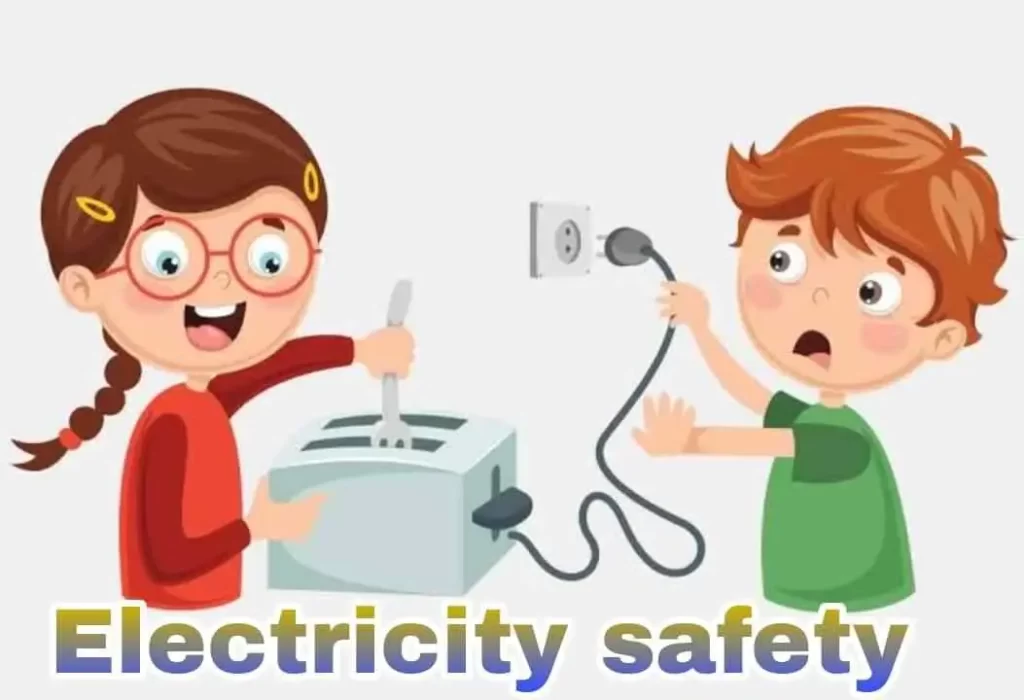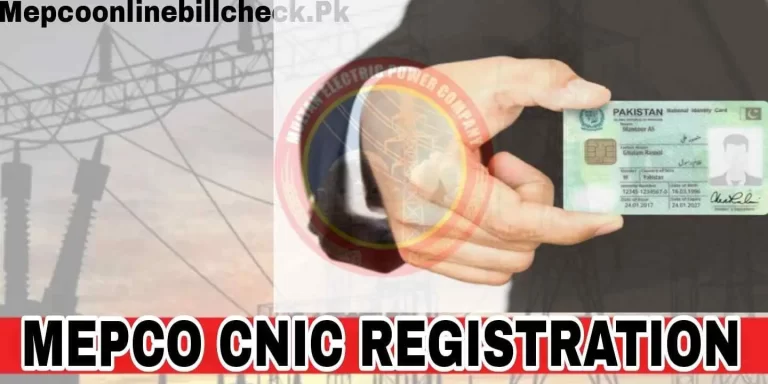15+ Electricity Safety Rules and Tips 2024
Electricity is a vital part of our daily lives, but it can also be dangerous if we don’t follow some basic safety rules. Electricity can cause fires, damage appliances, and injure people. That’s why you need to read Electricity Safety Rules and Tips.
In this article, we will share with you 10 essential electricity safety rules that you should follow to avoid accidents and injuries. These rules will help you to handle electrical equipment safely and prevent potential hazards.and avoid any late fees or disconnection and check your electric bill online in few seconds.you can pay you mepco bills online too.

Here are the 10 Electricity Safety Rules and Tips you should know:
| Rule | Description |
|---|---|
| 1. Keep flammable materials away from damaged electrical equipment | Flammable materials like paper, cloth, or gas can catch fire easily if there is a spark or a short circuit in the electrical equipment. To prevent this, you should keep these materials at a safe distance from any damaged or faulty electrical device. |
| 2. Don’t touch live electrical wires | Live electrical wires are those that carry current and can shock you if you touch them. You should never touch them directly with your bare hands or any metal object. If you need to work with live wires, you should wear protective gloves and use insulated tools. |
| 3. Don’t handle electrical switches or plugs with wet hands | Water can conduct electricity and increase the risk of getting an electric shock. Therefore, you should always make sure that your hands are dry and free of moisture before touching any electrical switch or plug. You should also avoid using electrical appliances near water sources like sinks, bathtubs, or pools. |
| 4. Don’t overload sockets or extension cords | Overloading sockets or extension cords means plugging in too many appliances or devices into one outlet or cord. This can cause overheating, melting, or fire. To avoid this, you should use only one appliance or device per socket or extension cord. You should also check the power rating of the appliances or devices and make sure they don’t exceed the capacity of the socket or cord. |
| 5. Don’t use damaged or frayed cords or wires | Damaged or frayed cords or wires are those that have cracks, cuts, or exposed wires. These can cause electric shocks, sparks, or fire. To avoid this, you should inspect the cords and wires regularly and replace them if they are damaged or worn out. You should also avoid bending, twisting, or stapling the cords or wires. |
| 6. Don’t insert metal objects into sockets or appliances | Metal objects like pins, nails, or forks can conduct electricity and cause electric shocks, sparks, or fire. To avoid this, you should never insert them into sockets or appliances. You should also keep them away from children who might be tempted to do so. |
| 7. Don’t use electrical appliances near flammable liquids or gases | Flammable liquids or gases like gasoline, kerosene, or propane can ignite easily if there is a spark or a flame from an electrical appliance. To avoid this, you should never use electrical appliances near flammable liquids or gases. You should also store them in a safe and ventilated place away from electrical sources. |
| 8. Don’t repair electrical equipment yourself unless you are qualified | Repairing electrical equipment yourself can be dangerous if you don’t have the proper knowledge, skills, or tools. You might cause more damage to the equipment or harm yourself or others. To avoid this, you should always consult a qualified electrician or technician if you need to repair any electrical equipment. You should also follow the manufacturer’s instructions and safety guidelines when using the equipment. |
| 9. Don’t leave electrical appliances on or plugged in when not in use | Leaving electrical appliances on or plugged in when not in use can waste energy, increase your electricity bill, and pose a fire hazard. To avoid this, you should always turn off and unplug the appliances when you are done using them. You should also use timers or power strips with switches to control the power supply to the appliances. |
| 10. Don’t ignore signs of electrical problems | Signs of electrical problems include flickering lights, buzzing sounds, burning smells, sparks, shocks, or tripped circuit breakers. These indicate that there is something wrong with the electrical system or equipment and that you need to take action. To avoid this, you should always pay attention to these signs and report them to a qualified electrician or technician as soon as possible. You should also avoid using the affected electrical system or equipment until it is fixed. |
By following these 10 Electricity Safety Rules and Tips, you can protect yourself, your family, and your property from electrical hazards. Remember, electricity is a powerful and useful resource, but it can also be dangerous if misused or mishandled. So, be smart and be safe when using electricity.
Table of Contents
Electricity Safety Rules and Tips
Here are some more Electricity Safety Rules and Tips that you should follow:
| Rule | Description |
|---|---|
| 11. Don’t splash water near the electrical sockets | Water and electricity don’t mix well. Splashing water near the electrical sockets can cause short circuits or electric shocks. This can damage the sockets, the appliances, or the people who use them. To prevent this, you should keep water away from the electrical sockets, especially during the rainy season. You should also cover the sockets with waterproof covers or tape. |
| 12. Don’t repair a damaged wire by keeping the switch on | Repairing a damaged wire by yourself can be risky, especially if you don’t have the proper tools or skills. But doing it while keeping the switch on can be fatal. You can get electrocuted or cause a fire. To prevent this, you should always turn off the switch and unplug the wire before attempting to repair it. You should also seek professional help if you are not sure how to do it safely. |
| 13. Don’t touch a person caught in an electric shock directly | If you see a person caught in an electric shock, your first instinct might be to touch them and try to free them. But this can be a big mistake. You can get shocked yourself or make the situation worse. To prevent this, you should first disconnect the power source or turn off the switch. Then, you should use an insulated material, such as a plastic or wooden stick, to separate the person from the electric source. You should also call for medical help as soon as possible. |
| 14. Use a voltage regulator to manage electricity fluctuations | Electricity fluctuations are changes in the voltage or current of the electricity supply. They can be caused by various factors, such as weather, demand, or faults. They can damage the electrical appliances or devices by overheating, melting, or burning them. To prevent this, you should use a voltage regulator, which is a device that stabilizes the voltage and current of the electricity supply. This can protect your appliances or devices from damage and extend their lifespan. |
| 15. Provide proper training and safety guidelines to spread awareness | One of the best ways to prevent electrical hazards is to educate yourself and others about Electricity Safety Rules and Tips. You should provide proper training and safety guidelines to your family or employees, especially if they are involved in tasks that require handling electrical equipment. You should also display safety signs and posters in your home or workplace to remind everyone of the electricity safety rules. This can help to reduce the risk of accidents and injuries. |
| 16. Quickly follow the emergency procedures | Despite following the Electricity Safety Rules and Tips, sometimes accidents can still happen. In such cases, you should quickly follow the emergency procedures to minimize the damage and save lives. You should switch off the power circuits, evacuate the area, and call the fire department or the electrician. You should also have a first aid kit and a fire extinguisher handy to deal with any injuries or fires. |
These are some more Electricity Safety Rules and Tips that you should follow to ensure your safety and the safety of others. Remember, electricity is a useful and powerful resource, but it can also be dangerous if misused or mishandled. So, be careful and be responsible when using electricity.

Common Causes of Electrical Hazards
Now, let’s look at some of the potential reasons for electrical hazards and how to avoid them. Here are some of the common causes of electrical hazards:
| Cause | Description | How to avoid |
|---|---|---|
| Direct contact with live or faulty wires | Live or faulty wires are those that carry current and can shock you if you touch them. They can also cause sparks or fire if they come in contact with other wires or materials. | You should never touch live or faulty wires directly with your bare hands or any metal object. You should also keep them away from other wires or materials. You should use insulated tools and gloves when working with live or faulty wires. You should also repair or replace them as soon as possible. |
| Fire or sparking from the damaged electrical circuit | Damaged electrical circuit is the network of wires, switches, and devices that carry electricity. If the circuit is damaged, it can cause fire or sparking due to overheating, short circuit, or overload. | You should regularly check the condition of the electrical circuit and look for any signs of damage, such as cracks, burns, or loose connections. You should also use the right size and type of wires, switches, and devices for the circuit. You should also avoid overloading the circuit by using too many appliances or devices. |
| Explosions caused by placing flammable materials near the electric source | Flammable materials are those that can catch fire easily, such as paper, cloth, or gas. If they are placed near the electric source, such as a socket, a plug, or a device, they can explode due to a spark or a flame. | You should keep flammable materials away from the electric source and store them in a safe and ventilated place. You should also avoid using open flames, such as candles or matches, near the electric source. You should also use fire-resistant materials, such as metal or ceramic, for the electric source. |
| Electricity leakage from the power installations or equipment | Electricity leakage is the loss of electricity from the power installations or equipment, such as transformers, generators, or motors. This can happen due to faulty or loose connections, corrosion, or wear and tear. Electricity leakage can cause electric shocks, fire, or power outage. | You should regularly inspect and maintain the power installations or equipment and look for any signs of leakage, such as sparks, smoke, or noise. You should also use proper grounding and insulation for the power installations or equipment. You should also report any leakage to the authorities or the service providers. |
| Damaged equipment and insulation | Damaged equipment and insulation are those that have cracks, cuts, or exposed wires. They can cause electric shocks, sparks, or fire due to the contact with the current or the environment. | You should inspect the equipment and insulation regularly and replace them if they are damaged or worn out. You should also avoid bending, twisting, or stapling the equipment and insulation. You should also use the right size and type of equipment and insulation for the purpose. |
| Touching the appliances with wet hands | Wet hands can conduct electricity and increase the risk of getting an electric shock. This can happen if you touch the appliances, such as a toaster, a hairdryer, or a blender, with wet hands. | You should always make sure that your hands are dry and free of moisture before touching any appliance. You should also avoid using appliances near water sources, such as sinks, bathtubs, or pools. You should also unplug the appliances when not in use or when cleaning them. |
| Voltage fluctuation and overloading of circuits | Voltage fluctuation is the change in the voltage of the electricity supply. Overloading of circuits is the use of more electricity than the capacity of the circuit. Both can cause damage to the appliances or devices by overheating, melting, or burning them. | You should use a voltage regulator to stabilize the voltage of the electricity supply. You should also use only one appliance or device per socket or extension cord. You should also check the power rating of the appliances or devices and make sure they don’t exceed the capacity of the socket or cord. |
These are some of the potential reasons for electrical hazards and how to avoid them. By understanding the causes and the solutions, you can prevent electrical hazards and ensure your safety and the safety of others.
Conclusion
To sum up, these electricity safety rules are very important to follow to avoid accidents and injuries caused by electricity. Electricity is a powerful and useful resource, but it can also be dangerous if misused or mishandled. By following these rules, you can protect yourself, your family, and your property from electrical hazards. You can also act quickly and effectively in case of an emergency. Thank you for reading this article and we hope you learned something new and useful. Stay safe and have a nice day!
However, if you face any issues with the MEPCO SMS service, such as not getting SMS notifications or having an inactive mobile number, you can report it to the MEPCO office or call the MEPCO Helpline. You can also contact us directly for any queries. We are always happy to help you.
FAQ
Here are some FAQs for the article:
Q: What are the benefits of using a voltage regulator?
A: A voltage regulator is a device that stabilizes the voltage and current of the electricity supply. It can protect your appliances or devices from damage caused by voltage fluctuations, such as overheating, melting, or burning. It can also extend the lifespan of your appliances or devices by preventing wear and tear.
Q: How can I prevent fire or sparking from the damaged electrical circuit?
A: You can prevent fire or sparking from the damaged electrical circuit by regularly checking the condition of the circuit and looking for any signs of damage, such as cracks, burns, or loose connections. You should also use the right size and type of wires, switches, and devices for the circuit. You should also avoid overloading the circuit by using too many appliances or devices.
Q: What should I do if I see a person caught in an electric shock?
A: If you see a person caught in an electric shock, you should not touch them directly with your bare hands or any metal object. You should first disconnect the power source or turn off the switch. Then, you should use an insulated material, such as a plastic or wooden stick, to separate the person from the electric source. You should also call for medical help as soon as possible.
Q: What are some of the common causes of electricity leakage from the power installations or equipment?
A: Electricity leakage is the loss of electricity from the power installations or equipment, such as transformers, generators, or motors. Some of the common causes of electricity leakage are faulty or loose connections, corrosion, or wear and tear. Electricity leakage can cause electric shocks, fire, or power outage.






